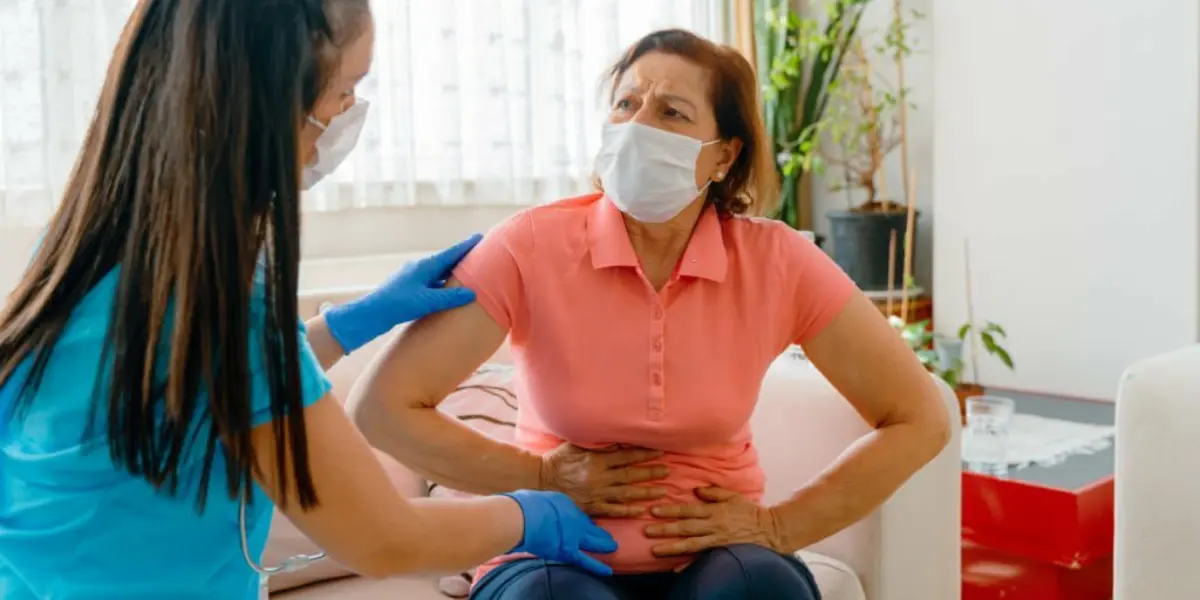Women blossom like flowers but quickly wither away_ proving reasons for the intense pressure of giving birth earlier.
There are different phases women go through and the final one is menopause. If you have heard of menopause but are confused about it or you already have an understanding, it’s good that you read through it and gain meaningful insight to embark on the journey.
What Is Menopause?
Menopause is the end of a woman’s reproductive years. During menopause menstruation stops permanently, with no chance of giving birth again because the ovaries will produce very low levels of hormone oestrogen and progesterone. Menopause is a normal part of a woman’s life referred to as “the change of life.” Menopause does not suddenly take place unnoticed, as the body transitions to menopause over many years, there will be symptoms and irregular periods. Menopause age of commencing for most women is 45 years to 55 years.

When you have not had your menstrual flow for twelve months in a row, no bleeding, no spotting, that means menopause has struck.
What Signs Shows A Woman Has Struck Menopause?
The signs have been evident from the Perimenopause which is the period from when the signs are first seen before migrating to a full year without periods. Menopause is usually self-diagnosable
The signs of menopause are:
- Irregular periods: the first noticeable signs are irregular periods. The period might last longer or shorter than the usual way, the period might come heavier or lighter than the normal way, and also if it comes more often or less.
- Hot flashes: this is when a woman suddenly feels warm or hot in their upper body for no reason, accompanied by redness of the skin, increased heart rate, and instant ends with chills. Some women experience hot flashes for some minutes while it lasts hours for some women. So it varies depending on the individual body.
- Vaginal problems: when estrogen levels decrease, the vagina walks will become loose, the acidity will decrease, and itchiness, burning sensation, discomfort, or pain during sex due to vagina dryness and cut and tears during sexual intercourse.
- Urinary Issues: reduced estrogen can cause urinary issues such as urinary incontinence.
- Insomnia: hormonal changes women experience may lead to poor quality of sleep.
- Mood swing: bearing all the changes that come with menopause is often stressful and can lead to mood swings.
- Low sex drive: most women may start to experience less interest in sexual activities. This is because when the estrogen level decreases, so does the flow of blood to the vagina and this can lead to thinning of vaginal tissues and labia. When this happens it may be difficult to get aroused.
What Causes Weight Gain During Menopause?
Hormonal changes such as a decrease in estrogen and progesterone along with aging generally. Also, a decrease in body mass makes fewer calories to be burned, when this happens fat accumulates. As metabolism slows down, muscle tone will be lost and fat will be generated contributing to more weight gain. Genetics, lack of sleep, and a sedentary lifestyle play a role as well.
How To Reduce Body Weight After Menopause?
The best way to reduce menopause weight gain will be by sticking to weight control measures like eating the right diet and performing exercise. The following ways will help:
- Select healthy food: choose fruits, vegetables, whole grains, lean protein, and healthy oils (olive and vegetable). Avoid eating bread, pasta, and baked foods that are hard to burn. Drinks like calorie-filled alcohol, sodas, and coffee drinks should be avoided.
- Perform exercise: going out for a jog or walk can help burn down accumulated fats.
- Get enough sleep: keep to a constant bedtime, a solid night’s rest is good for the body generally.
- Consult your doctor: if you’ve tried out all measures and no improvement, consult your doctor because it might be due to an underlying issue or certain medication. Your doctor can recommend a good nutritionist and also render solutions to any issues.
- Be realistic: the weight loss methods that worked when you were younger might not be effective in your menopausal body, you might want to change, and also don’t expect the transformation to be magical, losing weight takes a gradual process.
Related: How To Lose Water Weight While On Your Period?
Conclusion
Change is constant in life growth keeps on going till the end of life. Menopause is a phase that must happen to all women, embrace it, learn about how to deal with it, and live happier. Weight gain after menopause can be reduced but not in fast motion. Follow the methods listed above and remember to keep your expectations low.